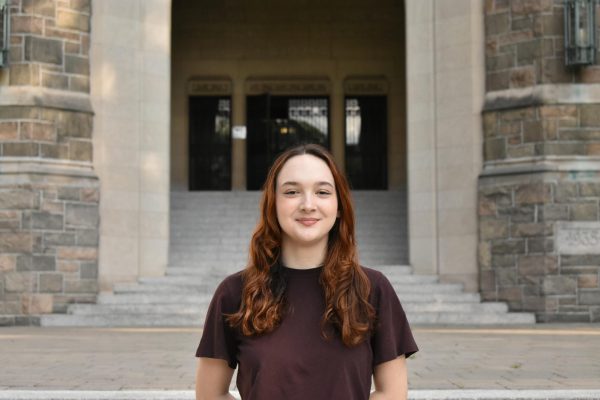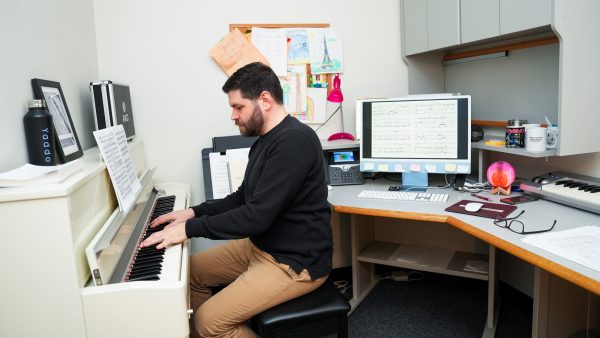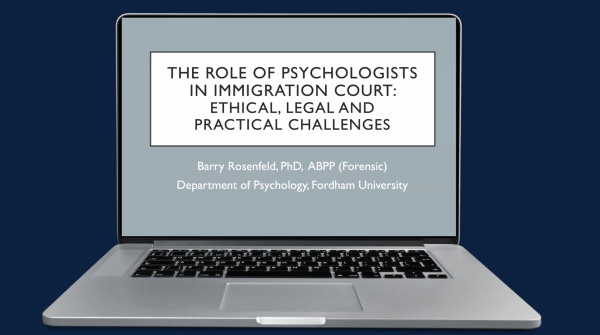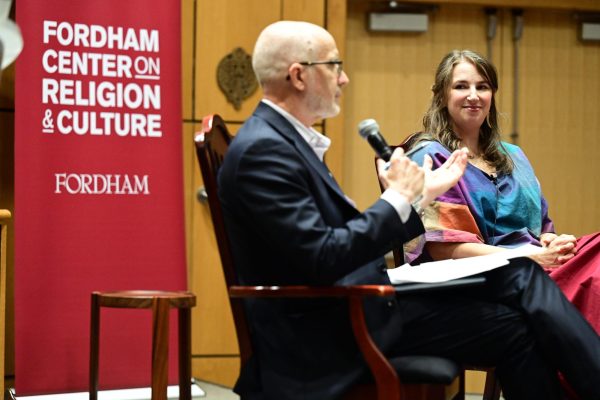The Disability Studies Program Host Annual Distinguished Lecture

Dr. Roy R. Grinker is a specalist in disability studies. (Courtesy of the Office of Disability Studies for The Fordham Ram)
On April 4, Fordham’s Disability Studies program held their yearly Distinguished Lecture on Disability, this year featuring anthropologist Roy R. Grinker, Ph.D., a professor at George Washington University. Grinker is an autism specialist who began exploring the concepts of neurodiversity and the epidemiological factors of autism after his own daughter’s diagnosis. He has written several books, including one called “Unstrange Minds,” which promotes the neurodiversity paradigm: Autism is not something to be cured and instead should be accommodated for, much like left-handedness.
One of the many important points Grinker highlighted was the stigma. Stigma exists for all psychiatric and neurological disorders, but is especially strong towards autistic individuals.
Telling the story of his daughter giving a speech at her high school graduation, Grinker noted that there were “murmurs” within the audience because she “spoke unusually” and had “different syntax than them,” which provoked curiosity, but also opened the door to unfriendly comments. It wasn’t until Grinker’s daughter shared that she was autistic that the crowd went into a cold silence, so distinctive that Grinker says he will remember that moment for the rest of his life.
Grinker has learned through his lived experiences and research that stigma is not eliminated with education and information, which is the leading theory. This is because stigma is learned socially and isn’t necessarily rational. Stigma is dependent on what society believes is “normal” and behaviors outside this normal are stigmatized.
When Grinker’s daughter spoke at a different pace, and in a way that most people found abnormal, it provoked stigma in the audience.
Stigma has existed throughout all of history. At one point in the 19th century, “1% of the population in Paris were in asylums,” said Grinker.
Women were considered “more insane” than men during this time period and were frequently diagnosed with hysteria as a catchall and placed in lunatic asylums after being deemed unfit for society. While hysteria was first believed to be a physical ailment, it slowly became understood as a psychological issue; more than that, hysteria was related closer to a misunderstanding of the female psyche than ableism. The diagnosis was sometimes related to modern psychiatric disorders, such as depression and bipolar, but medicine was not advanced enough to differentiate.
Men have experienced similar misdiagonses in history, particularly in the early 20th century, when the term shell shock was coined. Grinker stated that the diagnosis of shell shock, similar to hysteria, was born from a reluctance and lack of understanding of what we now know as posttraumatic stress disorder. Psychiatric illnesses were also associated with femininity, and thus weakness; being diagnosed with shell shock did not carry the same social burden as other psychiatric disorders. There was an element of fear that having a psychiatric illness prevented an individual from participating in so-called normal society, which felt life-ending for men during wartime.
Society has progressed rapidly as psychiatry has become more understood. In the 21st century, people are more likely to be consoled when receiving a psychiatric diagnosis — finally able to put a name to their symptoms — than filled with existential dread at what it may mean for their prospects. However, the latter is still very much a reality for many, especially for parents of autistic children who are afraid of how their child may be perceived by the world. That is why Grinker is so passionate about the work he does with disability studies and celebrating neurodiversity: to alleviate those worries and to create a more inclusive society where that fear no longer exists.
Grinker told a story of a college student filled with relief when she was diagnosed with ADHD, having spent her entire academic career thinking she was “stupid” and disappointing those around her for her apparent lack of effort.
Victories and successes like that are what encourages disability studies specialists to continue their hard work in eliminating stigma, creating accessible spaces and developing more inclusive environments for everyone to thrive.

Samantha “Sam” Minear is a senior from Long Branch, N. J., majoring in international studies and communications. She started as a contributing writer...









































































































































































































